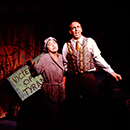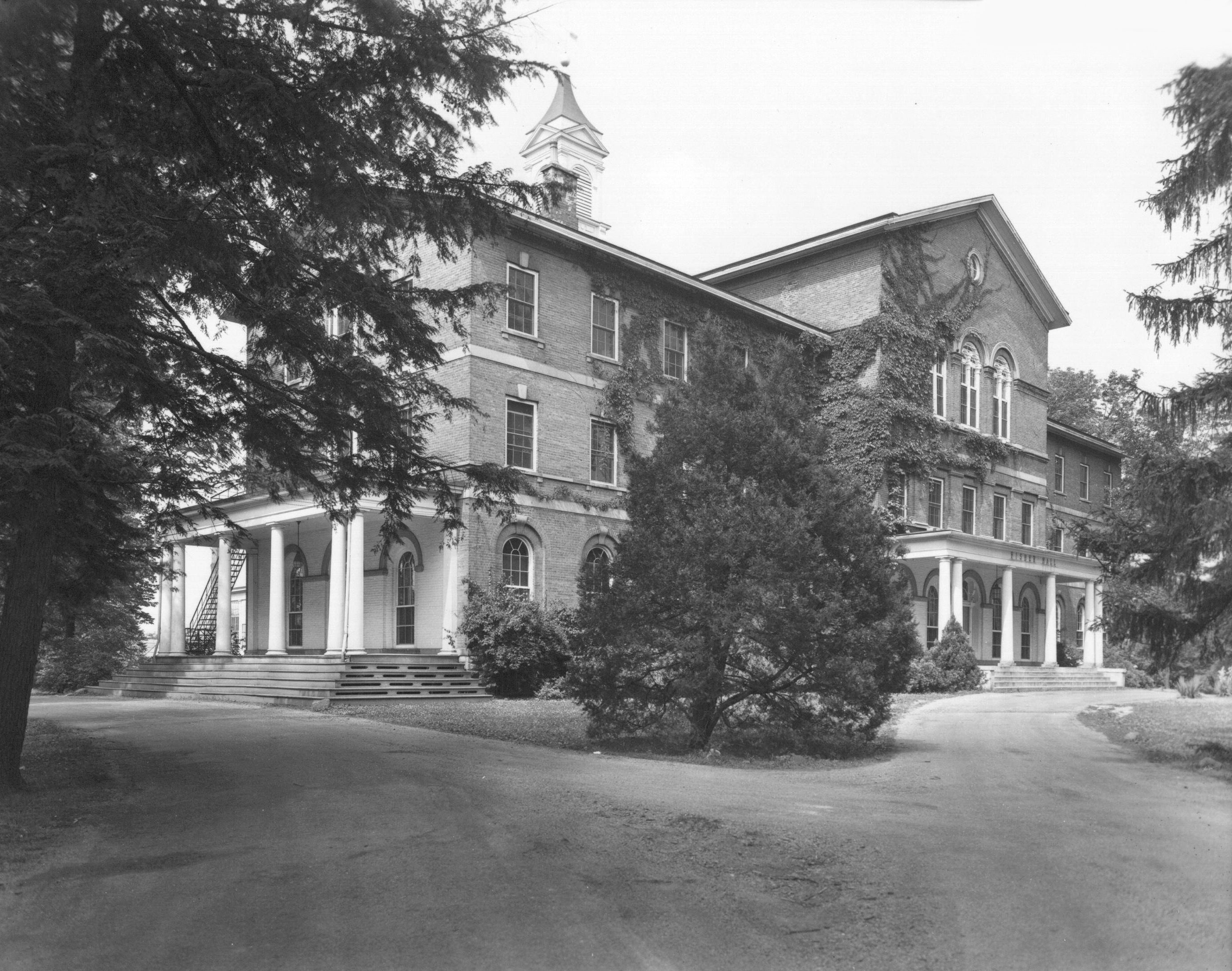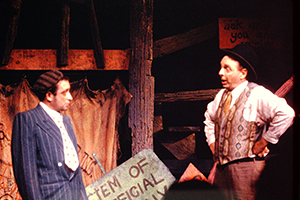Contact Us
Center for Performing Arts 119
Oxford, OH 45056
513-529-3053
theatre@MiamiOH.edu

On July 1, 1966, an audience gathered in Fisher Hall for the opening night of The Threepenny Opera. This was more than than a mere opening night. It was opening night of a brand new venture linking Miami University and the City of Oxford: The Village Playhouse, Miami University Summer Theatre.

As Walter Havinghurst observed in The Miami Years:
"People from Oxford and miles around parked their cars in the twilight, strolled through the gardens and gathered in the tiered seats of Fisher Hall for the curtain. For three seasons a repertoire of Brecht, Ibsen, Shaw, Thurber, and Rogers and Hammerstein enlivened the summer nights of Oxford."
After the first three seasons, MUST moved from Fisher Hall to the brand new Center for the Performing Arts. For thirty-six more seasons, MUST shows brought together students, community members, Miami faculty and staff to celebrate their love of theatre and to share popular and provocative work with the town.
Join us in sharing the memories of those who participated on stage, back stage, or in the audience!

Dr. Harry Williams, chair of the Speech Department, once noted that "a part of our best teaching is performed in the process of supervising the extra-curricular programs carried on in the various fields of speech." At that time, theatre was part of the Speech Department. Dr. Williams was known for bringing in the best faculty, and allowing them to develop new programming.
One such hire was Donald L. Rosenberg, brought in to lead Miami University Theatre on the retirement of Homer Abegglen. Don had created a successful summer theatre program in South Dakota that brought together the resources of the local University and the community. Williams supported the effort to develop something similar at Miami.
Don established four goals:
To encompass these goals, the program was named The Village Playhouse, Miami University Summer Theatre.
Don created an Advisory Board representing the Miami and Oxford communities. In addition to Don himself, the Advisory Board included
 How to kick off the Village Playhouse? Don wanted something "theatrical, musical, socially responsible, challenging to cast, design and build." In 1964, his production of The Threepenny Opera at Yankton College had been billed a "fine directing triumph." Threepenny opened the season, and was hailed as “ambitious,” “a different and exciting theatrical experience,” boasting a “uniformly excellent cast” and “impressive staging.”
How to kick off the Village Playhouse? Don wanted something "theatrical, musical, socially responsible, challenging to cast, design and build." In 1964, his production of The Threepenny Opera at Yankton College had been billed a "fine directing triumph." Threepenny opened the season, and was hailed as “ambitious,” “a different and exciting theatrical experience,” boasting a “uniformly excellent cast” and “impressive staging.”
Some thoughts about that cast, courtesy of Don Rosenberg:
"Auditioning was advertised and open. Of importance was to include our students. But as it turned out there also was a surprising result.
And so many Oxford, Miami people filled out the cast. A special Oxford businessman Jack Samuelson (Jack's Corner men's clothing shop), played Filch and was admired for his help for students and his generosity to the University."
The Threepenny Opera was followed up by a children's show The Clown Who Ran Away, Shaw's Arms and the Man, and a murder mystery The Bat.
Make Theatre. Make a Difference.
Center for Performing Arts 119
Oxford, OH 45056
513-529-3053
theatre@MiamiOH.edu